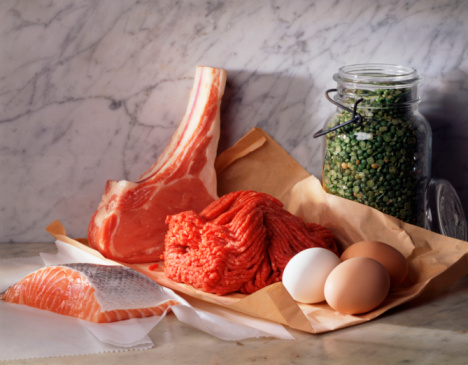Difference Between Plant Protein and Animal Protein

Proteins are important for our diet and are present in many food items. People know their importance but do not know their level varies among different food sources. In order to consume a healthy diet, you need to know how plants and animal proteins differ. Proteins are made up of linked amino acids and are large organic compounds. They play vital role in almost all processes in body and are important for growth and repair. Proteins are present in several plant and animal sources but have different amino acids composition.
Instructions
-
1
Complete and incomplete proteins
Plants are known as incomplete proteins as they do not have all essential amino acids which your body requires. Thus it lacks maintaining the growth of tissues. Cereals, grains, nuts, beans, lentils, wheat and rice are few of the plant proteins. However, they lack few amino acids and are not sufficient for your body. You need to mix these with animal proteins in order to provide a healthy diet to yourself.
Animal proteins on the other hand are believed to be complete proteins. They offer complete diet and all important amino acids which a body requires. Your body requires nine amino acids in order to have a proper diet. Animal proteins provide all these amino acids. Some of the animal proteins are meats especially lean meat, fish, poultry, cheese, milk and eggs. -
2
Function of proteins
Proteins play an important part in maintaining cell growth. It also encourages cells’ growth and help in repairing of damaged tissues. Proteins also play a role in creation of enzymes and creation of body tissues. Thus it is important for people who are dieting or have opted to become a vegetarian to be certain they are having all amino acids. -
3
Fats and Cholesterol level
Animal proteins have high fats and cholesterol level which can cause many problems and medical conditions. People with meat rich diet only usually suffer osteoporosis and poor kidney functioning.
Plant proteins on the other hand have low fats and cholesterol level. Thus people who are on diet prefer plant proteins. -
4
Protein complementing
As plant proteins do not have all nine amino acids which body requires, they are combined with other proteins and this process is known as protein complementing. Some examples of protein complementing diet are rice with beans, cheese sandwich and baked beans and milk with muesli.






